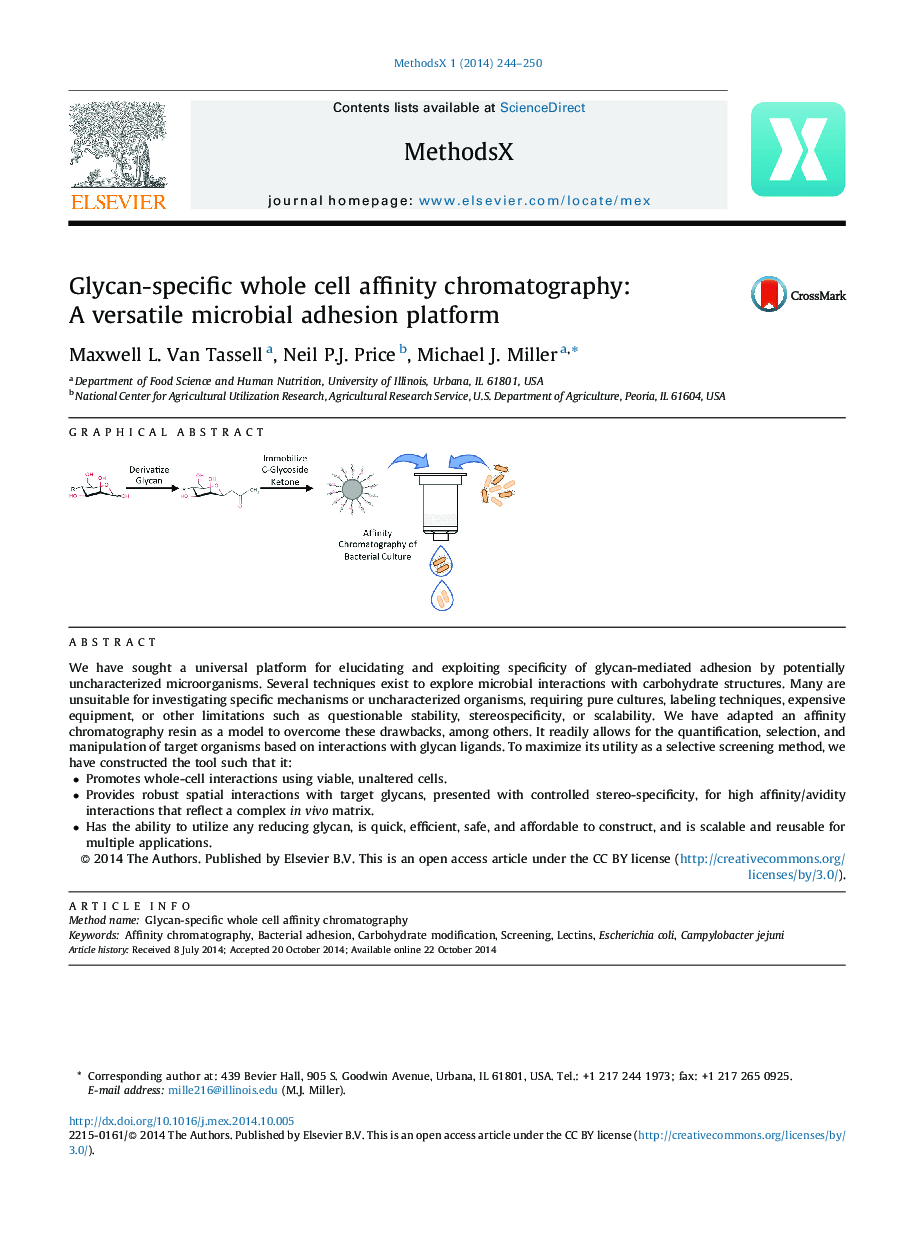| Article ID | Journal | Published Year | Pages | File Type |
|---|---|---|---|---|
| 2058713 | MethodsX | 2014 | 7 Pages |
We have sought a universal platform for elucidating and exploiting specificity of glycan-mediated adhesion by potentially uncharacterized microorganisms. Several techniques exist to explore microbial interactions with carbohydrate structures. Many are unsuitable for investigating specific mechanisms or uncharacterized organisms, requiring pure cultures, labeling techniques, expensive equipment, or other limitations such as questionable stability, stereospecificity, or scalability. We have adapted an affinity chromatography resin as a model to overcome these drawbacks, among others. It readily allows for the quantification, selection, and manipulation of target organisms based on interactions with glycan ligands. To maximize its utility as a selective screening method, we have constructed the tool such that it:•Promotes whole-cell interactions using viable, unaltered cells.•Provides robust spatial interactions with target glycans, presented with controlled stereo-specificity, for high affinity/avidity interactions that reflect a complex in vivo matrix.•Has the ability to utilize any reducing glycan, is quick, efficient, safe, and affordable to construct, and is scalable and reusable for multiple applications.
Graphical abstractFigure optionsDownload full-size imageDownload as PowerPoint slide
